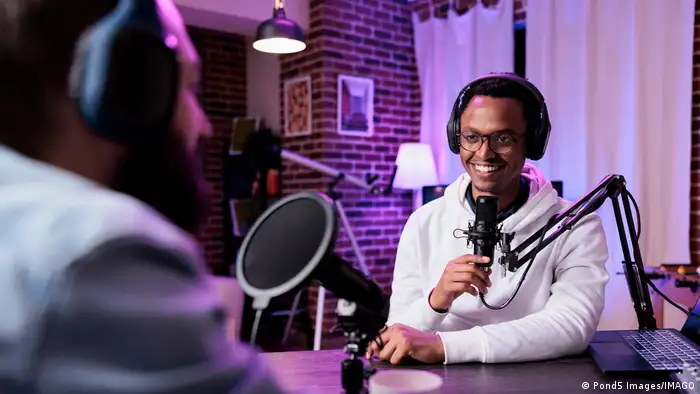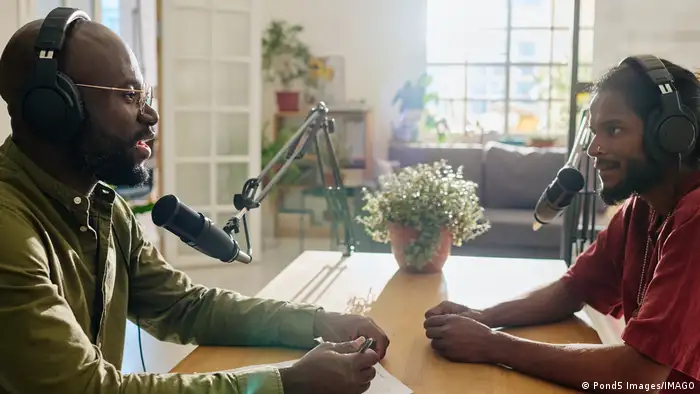Podcasting
Podcast payday: Tips on earning revenue with your show
Monetizing their podcasts is one of the biggest challenges producers say they face. But it’s not impossible. We’re taking a look of some of the tried-and-true ways to generate cash to support your show.
Even Basim Dawood, business development manager for Sowt Media, one of the Middle East region’s leading podcast producers, says it’s a challenge to monetize podcasts. (Making money is never easy, is it?) But in the PodCircle interview with him, he also stressed that there are many opportunities out there for generating revenue.
It’s important for podcasters to know what those opportunities are, and to know what’s the right avenue to pursue at the right time. Some are more appropriate for new shows, other for pods with established audiences.
Many podcast hosting platforms have added monetization services into their mix. So before signing up with one, check out what they have on offer, what the benefits are and how much it costs. Also, make sure it will work in your region.
Below, we’re unpacking a few of the monetization methods that Basim discussed and taking a look at a few more.
Apply for Grants
This option is especially good for new podcasts who might not have big audiences, or even might not be produced yet. Sponsors will look for audience and download numbers, donors (NGOs, non-profit and corporate foundations, charities, media development organizations, etc.) are usually more interested in the content of the podcast, and if it matches up with their priorities. If it does, they might be willing to fund (part of) it. Look around for organizations working in the field that fits in with your podcast topic and see if they offer grants. A good resource is the Global Forum for Media Development (GFMD). Check out their funding page here.
Offer Services
You’ve built up audio editing chops, can write a strong script, get good audio and have a good ear. Why not let those skills start earning you money? You can sell consulting and production skills to individuals and businesses. Tasks involved range from concept planning, developing formats and structure, writing scripts, editing audio, working on sound design, mixing episodes and helping with distribution and promotion. You can also sell you expertise by offering podcast workshops to companies and organizations. Because podcasting has become so popular, demand for training is high.
Sell Ads or Sponsorships
This is one of the most common ways to monetize your podcast. And we’ve all heard the phrase: “This podcast episode is brought you by…” In short, a sponsor or advertiser pays you, the producer, to promote their goods or services on your show. There are both host-read ads and radio-style ads, which which the sponsor pre-records. They can be placed at the beginning or end of a show or somewhere in the middle. The kind of income you make depends on the kinds of sponsors you find. That, in turn, will depend on your listener and download numbers. So this strategy is best for podcasts that have built up a following and have data on reach that will make them interesting to potential sponsors. In many regions, podcast advertising networks can hook you up with sponsors.
Explore Subscriptions/Membership Tiers
You can consider subscription services or paid membership tiers for your podcast. Those who pay a monthly fee get early access to new episodes, extra content like bonus episodes or bonus segments at the end of an episode. You can develop different tiers where those paying a lower fee get certain benefits while those paying more get even more. Many podcasters use the Patreon platform, but there are other, similar platforms out there. Remember, these platforms will take a cut Again, this strategy usually works better if your podcast has built up a decent-sized listener base and you have the capacity to offer extra content promised. You don’t want people to pay and then be unable to deliver.
Put your Show on YouTube
You can make extra money on episodes you’ve created by publishing them to YouTube as videos. It’s pretty painless and you just need to enable monetization in your account settings and Google will handle the rest. You’ll need some kind of image on YouTube but don’t worry if you don’t have a lot of video. A single image to your episode recording will work. But make sure you can monetize on YouTube in your country. This list has an overview of where it’s possible in March 2024.
Solicit Donations
If you’ve got a number of listeners, ask them to help you keep producing great content by donating to you, even in small amounts. Put a CTA at the end of your show asking people to make a financial contribution if they can and make clear how they can make it. It really helps if people understand where the money is going. For example, will it go to upgrade equipment, new software or help you pay the rent? Important: Make sure that you thank listeners for parting with some of their hard-earned money. Another idea is to launch a crowdfunding campaign on platforms like Kickstarter, GoFundMe or Indiegogo to raise funds for a project or goal. Make sure you talk about your crowdfunding project on all of your communication channels to reach more potential donors.
Sell Merch
If you’ve got a good number of fans, consider merchandise that has your show’s name and logo on it. Products can be t-shirts, hoodies, mugs, stickers, etc. On the products, put your name and logo, maybe a phrase that’s said on the show a lot. It’s a good way to start building a community and allow your listeners to “find” each other out in the world – say one of them sees another wearing a shirt with your pod’s name on it, instant bond! There are steps involved in getting a successful merch operation started. This site has a good overview.
Host Live Events
If you’ve established yourself and have a sizeable local audience, or maybe a good number of superfans who would travel to see you, you can sell tickets to a live event where your listeners can meet you in person. Find a venue and record a show in front of a live audience. Allow questions and audience interaction. If you’ve got the resources and organization capacity to set it up, events are a great way to connect with your audience, build a strong community and general some income at the same time.
DW recommends
- Date 02.04.2024
- Author Kyle James
- Feedback: Send us your feedback.
- Print Print this page
- Permalink https://p.dw.com/p/4eMEo
- Date 02.04.2024
- Author Kyle James
- Send us your feedback.
- Print Print this page
- Permalink https://p.dw.com/p/4eMEo


